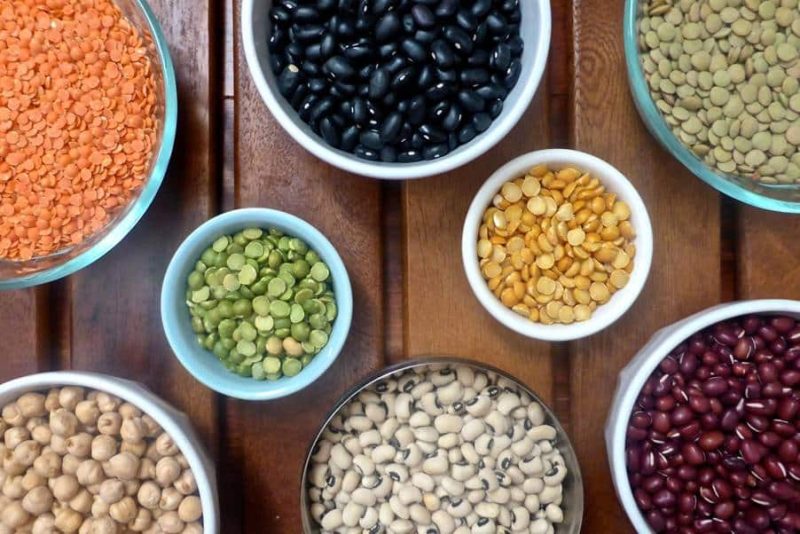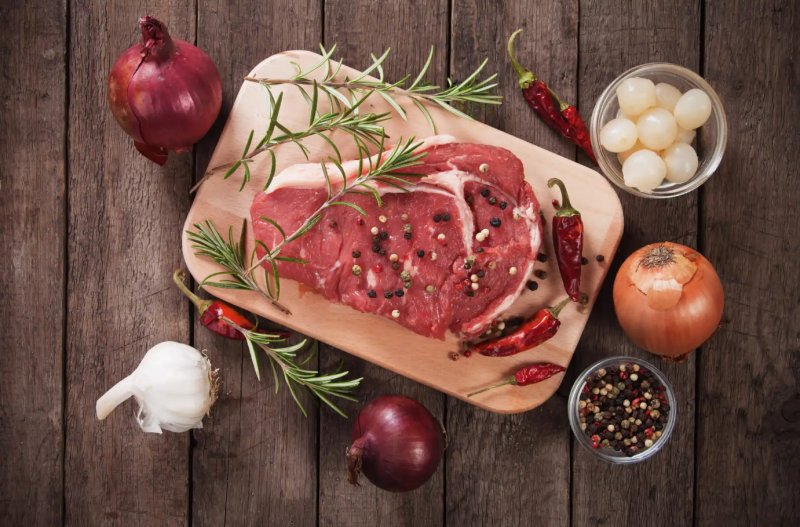 Some foods that increase uric acid in the blood contain large amounts of purine. And when it accumulates in the fluid in the joints, it causes inflammation and pain, especially affecting the toes and ankles.
This accumulation of uric acid is known as gout and is one of the possible consequences of hyperuricemia. To reduce your risk and maintain a better quality of life, lifestyle changes must be implemented, starting with diet. Below we detail more about those foods that raise uric acid.
Some foods that increase uric acid in the blood contain large amounts of purine. And when it accumulates in the fluid in the joints, it causes inflammation and pain, especially affecting the toes and ankles.
This accumulation of uric acid is known as gout and is one of the possible consequences of hyperuricemia. To reduce your risk and maintain a better quality of life, lifestyle changes must be implemented, starting with diet. Below we detail more about those foods that raise uric acid.
Contents
What is elevated uric acid, and what are its symptoms
Uric acid is a substance created naturally in the body when it processes compounds known as purines. These are found in the body but are also provided by some foods and drinks. The body has its mechanisms to eliminate it through the kidneys and urine. Hyperuricemia (elevated uric acid in the blood) appears when there are problems eliminating them, or it occurs in very high amounts. This can be due to a wide variety of reasons:- Taking diuretic and immunosuppressive drugs.
- Alcohol.
- Obesity.
- Some diseases, such as psoriasis, hypothyroidism, and renal failure.
- A diet with a high purine content.
- pain in the big toe
- severe pain and swelling in the joints
- difficulties urinating
- tachycardia
- knee pain
- fatigue
- hard lumps may appear in the joints
Foods that increase uric acid levels
Diet is one of the habits that are changed in people with hyperuricemia or a gout attack. It should be said that this does not cure the disease, but it can reduce the frequency and risk of suffering new outbreaks and other consequences. In general, the aim is to reduce obesity (if it exists), provide foods that can control uric acid, and eliminate or limit some of those that contain higher amounts of purines as much as possible. Discover which foods increase uric acid so that you can reduce or decrease their consumption.1 – Seafood
They are foods with a high amount of purines, so they should be moderated in the diet if you have high uric acid. Among this group are:- crabs
- prawns
- oysters
- clams
- mussels
2 – Red meat
 It is one of the foods that contributes the most to its increase, as suggested by the study in the previous paragraph. If you have high levels, you should avoid it altogether, except for poultry meat.
Pork and beef also have a high percentage of purines. As well as very fatty and offal, meat extracts, minced meat, and kidneys.
It is one of the foods that contributes the most to its increase, as suggested by the study in the previous paragraph. If you have high levels, you should avoid it altogether, except for poultry meat.
Pork and beef also have a high percentage of purines. As well as very fatty and offal, meat extracts, minced meat, and kidneys.
3 – Alcoholic beverages
Beer is more harmful than shellfish and meat for people with high uric acid, even when it is non-alcoholic. This is because it increases the production of its levels in the body and makes it difficult to eliminate. Specialists recommend avoiding beer and all kinds of liquor if you suffer from gout. This confirms Dr. Luz Montero’s research from the University of Chile. Another study indicates alcohol is a risk factor for increased uric acid and gout flare-ups.4 – Sugary drinks and sweet pastries
Commercial soft drinks and fruit juices with high fructose corn syrup or any high fructose sweetener will stimulate uric acid production. Also, sweet cookies, candies, industrial pastries, and all those products are made with large amounts of sugar and added sweeteners.5 – Sausages
In general, all protein foods of animal origin are considered unsuitable. We have already seen that red meat and offal are not suitable; the same happens with sausages, another of the food groups that can be dispensed with.6 – Legumes
Among foods of plant origin, some have higher purine concentrations. Legumes are one of them, although it must be borne in mind that the amount they concentrate in 100 grams is much smaller than what fish, shellfish, or meat can have. The data shows that these would not be related to hyperuricemia, although they could have a negative link with the risk of gout. Therefore, regular consumption could be recommended, substituting more harmful animal protein sources and combining them with others such as white fish, lean meat, or eggs. In case of a gout crisis, it is preferable to consult with the doctor.7 – Vegetables
Mushrooms, asparagus, and spinach are usually the most cited vegetables since they are among those that contain the highest amounts of purines. However, these foods are in the same situation as legumes. As some experts point out, for the moment, it has not been possible to establish that they increase the risk of gout attack and hyperuricemia. Vegetarian diets or diets with a notable presence of vegetables have been shown to be positive against this condition, so it seems advisable to choose from a wide variety of vegetables without abusing anyone in particular.Treatments and tips for uric acid
 Diet is just one of many factors that play a role in increasing uric acid levels. Therefore, to improve this situation, it is necessary to complete it with other healthy habits, medication, and other remedies.
Diet is just one of many factors that play a role in increasing uric acid levels. Therefore, to improve this situation, it is necessary to complete it with other healthy habits, medication, and other remedies.
- On the one hand, the pain is quite annoying, but some measures can alleviate the problem. For example, apply cold compresses to sore joints, a clear recommendation in this study from the University of the Americas (Chile).
- Likewise, the doctor can prescribe non-steroidal anti-inflammatory drugs if he sees fit since they are very relieving. Drugs may also be necessary initially to lower hyperuricemia, but the doctor must always prescribe them.
- Lose weight if necessary.
- To improve health and quality of life, it is advisable to maintain heart-healthy habits: avoid a sedentary lifestyle, tobacco, and excess salt.
An example of a diet to lower uric acid
Complex carbohydrates from fruits, vegetables, and whole grains represent a proper diet. Healthy fat should also be present in moderation, preferably from olive oil. Saturated fat in red meat and full-fat dairy should be reduced. The most suitable proteins come from legumes, white meat, and skim milk. Eggs are also interesting as they contain almost no purines. Breakfast- One glass of skimmed milk
- Two slices of whole wheat bread with olive oil and sliced tomato
- Coffee or infusion
- One banana with a handful of nuts
- pumpkin and onion cream
- grilled sea bass with a boiled potato
- One natural yogurt
- Watermelon slice.
- green salad with avocado
- tortilla
- One natural yogurt